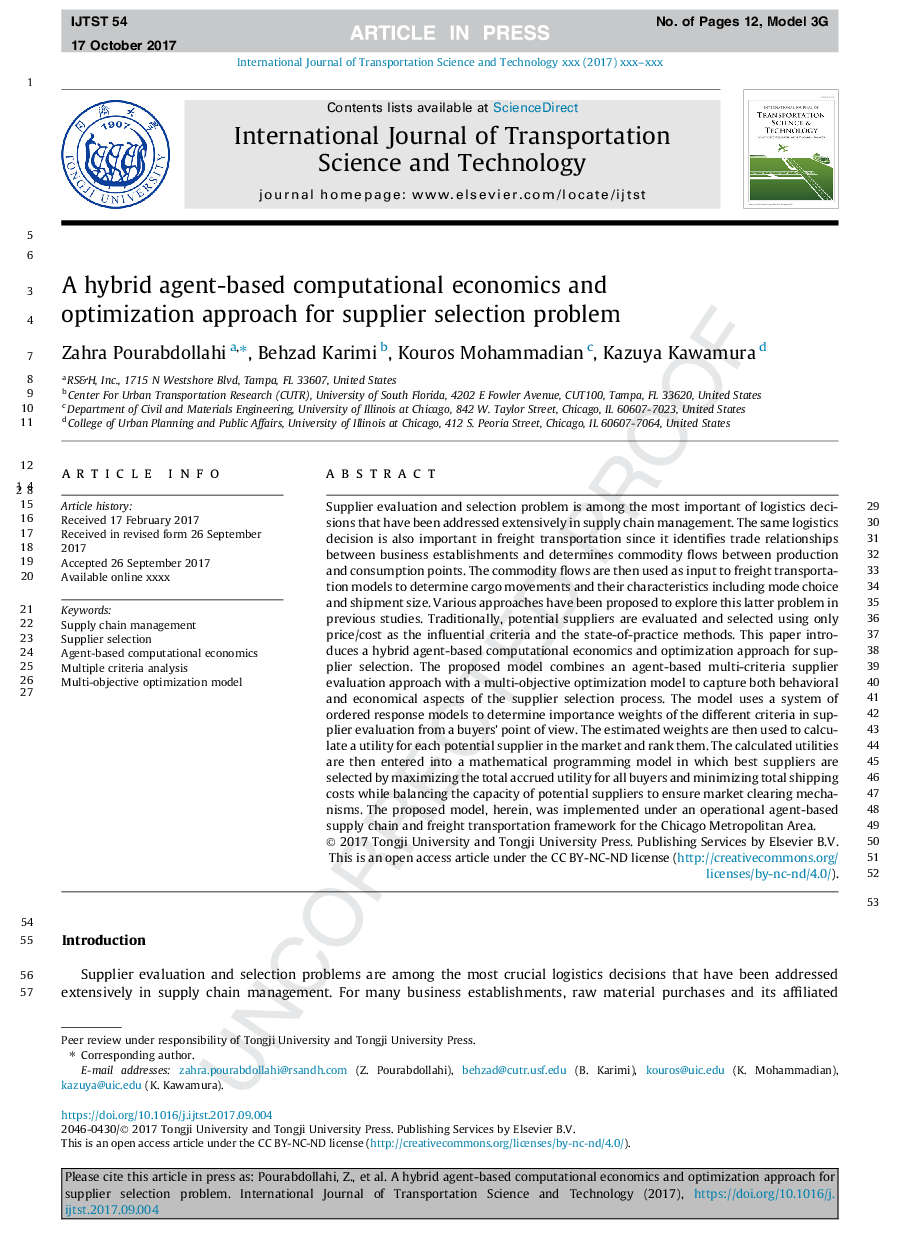ترجمه فارسی عنوان مقاله
اقتصاد محاسباتی مبتنی بر عامل ترکیبی و رویکرد بهینه سازی برای مشکل انتخاب تامین کننده
عنوان انگلیسی
A hybrid agent-based computational economics and optimization approach for supplier selection problem
| کد مقاله | سال انتشار | تعداد صفحات مقاله انگلیسی |
|---|---|---|
| 84043 | 2017 | 12 صفحه PDF |
منبع

Publisher : Elsevier - Science Direct (الزویر - ساینس دایرکت)
Journal : International Journal of Transportation Science and Technology, Volume 6, Issue 4, December 2017, Pages 344-355
ترجمه کلمات کلیدی
مدیریت زنجیره تامین، انتخاب تامین کننده، اقتصاد محاسباتی مبتنی بر عامل، تجزیه و تحلیل معیارها، مدل بهینه سازی چند هدفه
کلمات کلیدی انگلیسی
Supply chain management; Supplier selection; Agent-based computational economics; Multiple criteria analysis; Multi-objective optimization model;

